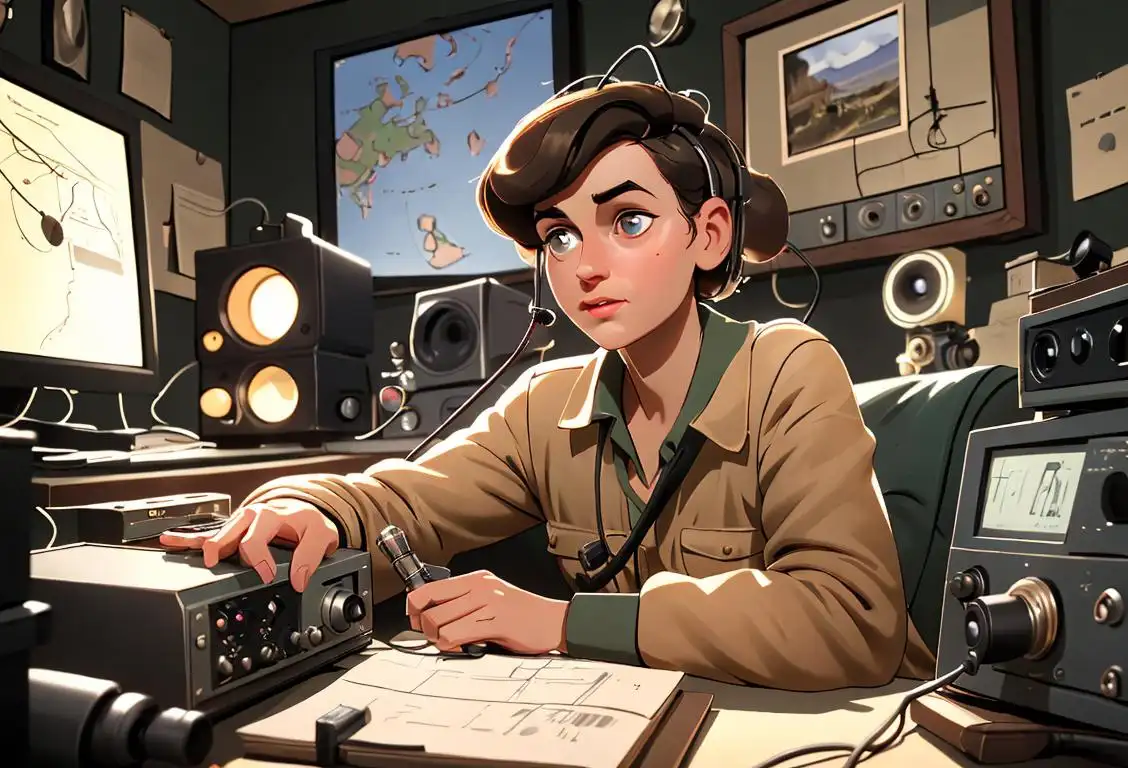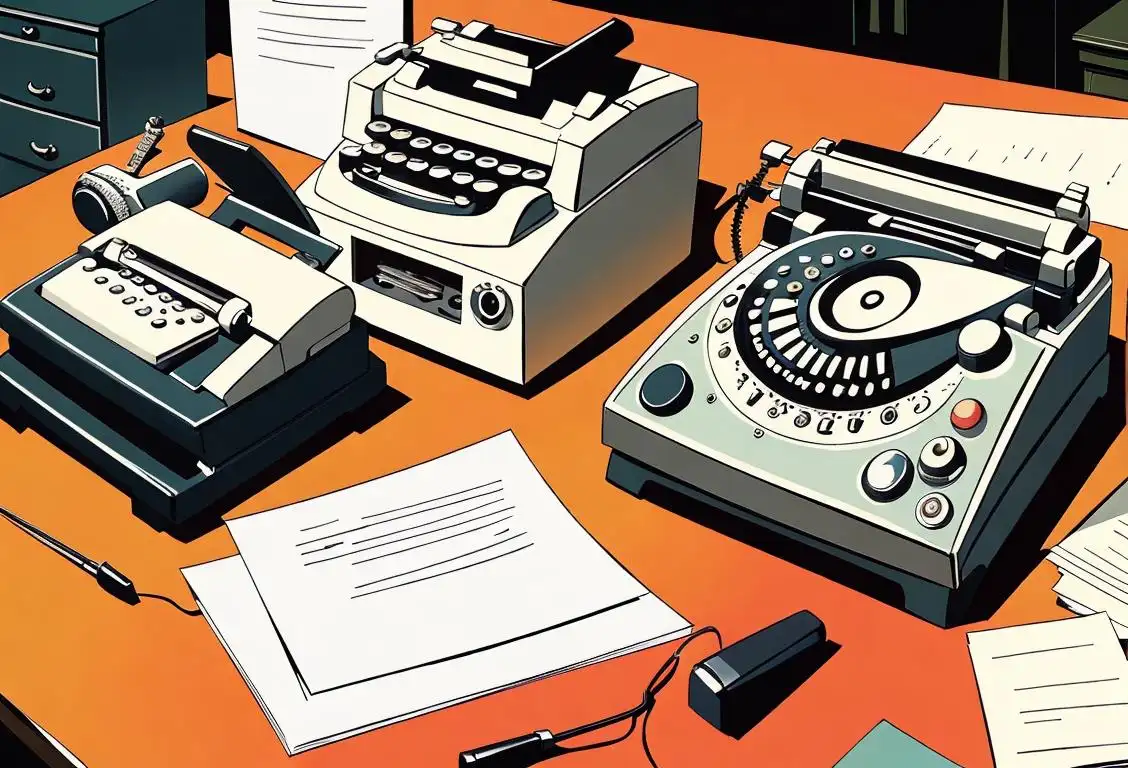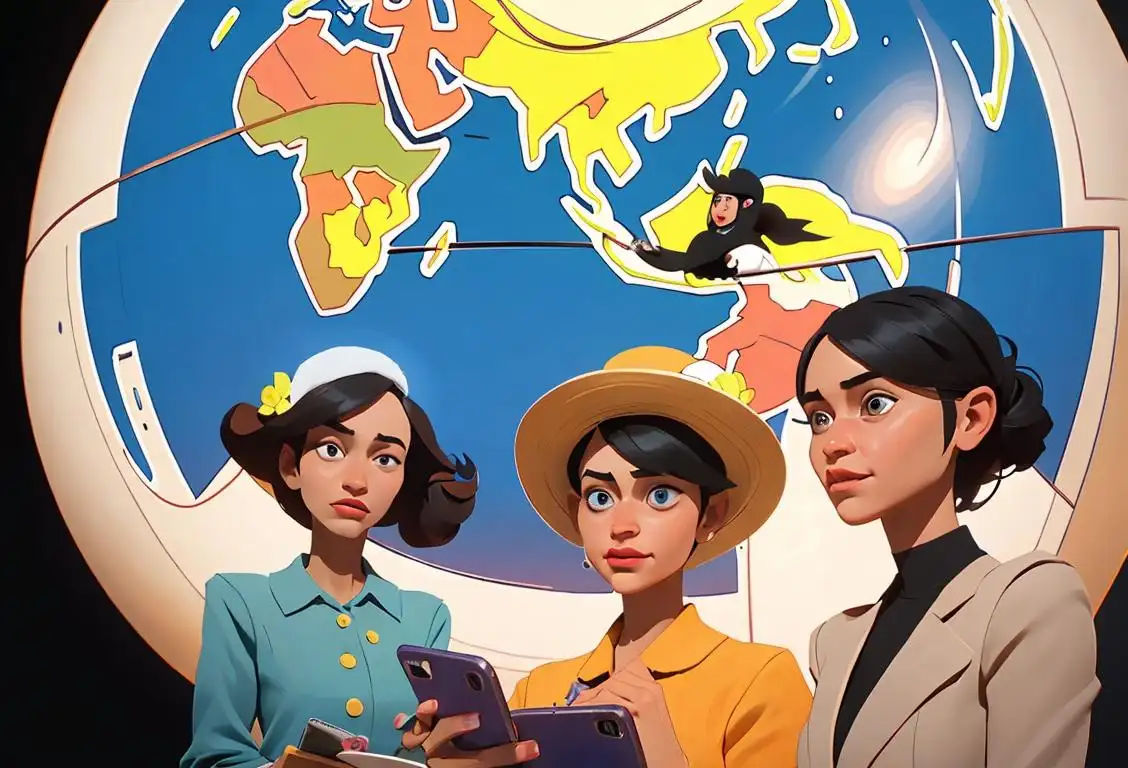National Amateur Radio Operators Day

Hey there, fellow internet explorer! Today, we're diving into the captivating world of National Amateur Radio Operators Day. Get ready to tune into the fascinating history of this day dedicated to the unsung heroes of amateur radio.
When is Amateur Radio Operators Day?
It's national amateur radio operators day on the 20th November.
Unleash the Power of Morse Code
Imagine a time when emails, texts, and instant messaging didn't exist. Hard to wrap your mind around, right? Well, before the internet as we know it today, amateur radio operators were the superheroes of communication.
Every year on National Amateur Radio Operators Day, we celebrate these radio enthusiasts who bring a touch of magic to our modern world. These are the folks who can communicate with someone halfway around the globe using just some wires, gadgets, and a little Morse code know-how.
But where did it all begin? Where did the noble quest of amateur radio operators originate? Buckle up, because we're about to embark on a thrilling adventure through the annals of history.
The Birth of Amateur Radio Operators
Amateur radio, also known as ham radio, has been around nearly as long as radio technology itself. Way back in the late 19th century, an inventive man named Guglielmo Marconi was tinkering away with his wireless telegraphy experiments. His pioneering work laid the foundation for modern radio communication, and amateur radio was born.
Over time, the radio craze spread, and a vibrant community of radio enthusiasts emerged. These amateur radio operators became skilled at Morse code, honing their abilities to communicate with fellow hams across vast distances. Their dedication to the craft and their passion for radio technology brought them closer together as a community.
Fast forward to the present day, and amateur radio operators are still at it, keeping the spirit of communication alive. They connect with others, forge friendships, and often provide essential emergency communications when traditional means fail. So, yes, these unsung heroes truly deserve a day of recognition!
An Exciting Celebration
On National Amateur Radio Operators Day, ham radio enthusiasts gather, virtually or in person, to share stories, exchange knowledge, and keep the radio waves buzzing. They may participate in contests, demonstrations, or even organize public events to showcase the wonders of amateur radio. It's a chance for both seasoned operators and curious beginners to dive into this mesmerizing world and discover the joy of tinkering, communicating, and connecting.
So, whether you're an avid ham radio enthusiast, a curious dreamer, or someone who just loves to learn about fascinating hobbies, National Amateur Radio Operators Day is here to bring a spark of excitement into your life. Grab your imaginary headset, tap into that endless curiosity, and celebrate the magic of ham radio!
History behind the term 'Amateur Radio Operators'
1895
Invention of radio communication
In 1895, Guglielmo Marconi successfully transmitted a radio signal over a distance of 1.5 miles using electromagnetic waves. This breakthrough laid the foundation for the development of amateur radio operators.
1906
Early experimentation by hobbyists
In 1906, as more people became interested in wireless communication, hobbyists started to experiment with radio technology. They began building their own transmitters, receivers, and antennas, and communicated with each other using amateur radio stations. This informal network was the birth of amateur radio operators.
1914
Regulation and licensing
As amateur radio gained popularity, concerns arose over interference and unregulated transmissions. In 1914, the United States government stepped in and started issuing licenses to amateur radio operators. These licenses ensured that operators were knowledgeable about radio operation and adhered to certain frequencies and operating procedures.
1927
International recognition and cooperation
In 1927, the International Amateur Radio Union (IARU) was formed, bringing together amateur radio organizations from different countries. The IARU worked towards harmonizing regulations and frequencies across borders, promoting technical excellence, and fostering international friendships among amateur radio operators.
1965
Amateur satellite communication
Amateur radio operators reached a significant milestone in 1965 when the first amateur satellite, OSCAR-1, was launched into space. This breakthrough allowed radio enthusiasts to communicate through satellites and expanded the capabilities of amateur radio further.
2000
Advancements in digital modes and technology
With the advent of digital technology, amateur radio operators embraced new modes of communication. In the early 2000s, advancements in software-defined radios and digital modes like packet radio, APRS (Automatic Packet Reporting System), and JT65 revolutionized long-distance communication and data exchange among amateur radio enthusiasts.
Did you know?
Did you know that the first-ever amateur radio license was issued in 1912? Back then, you needed to pass a rigorous test that included both technical and Morse code proficiency. Talk about a true radio champion!Tagged
community communication technologyFirst identified
19th November 2020Most mentioned on
20th November 2020Total mentions
17Other days
Amateur Radio Operators Day
World Emoji Day
Telephone Day
Please Text Me Back Day
Freebsd Day
Fax Machine Day
Emoji Game Day
Internet Day
Television A Historic Day
Convention On Day








